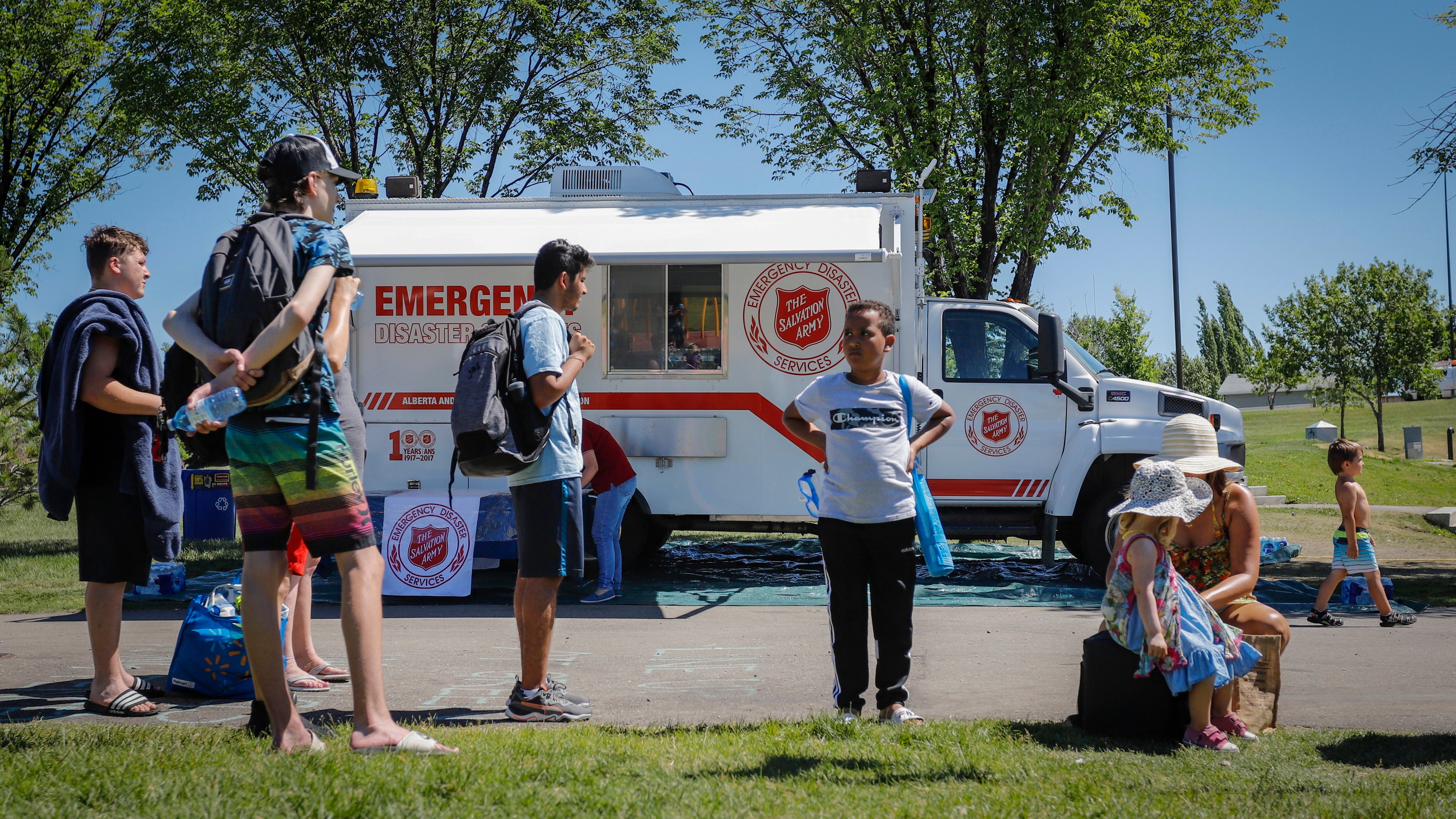Death toll from Northwest heat wave expected to keep rising
Each day, more deaths are being linked to the heat wave that struck the Pacific Northwest this past week

Your support helps us to tell the story
From reproductive rights to climate change to Big Tech, The Independent is on the ground when the story is developing. Whether it's investigating the financials of Elon Musk's pro-Trump PAC or producing our latest documentary, 'The A Word', which shines a light on the American women fighting for reproductive rights, we know how important it is to parse out the facts from the messaging.
At such a critical moment in US history, we need reporters on the ground. Your donation allows us to keep sending journalists to speak to both sides of the story.
The Independent is trusted by Americans across the entire political spectrum. And unlike many other quality news outlets, we choose not to lock Americans out of our reporting and analysis with paywalls. We believe quality journalism should be available to everyone, paid for by those who can afford it.
Your support makes all the difference.Each day, more deaths are being linked to the heat wave that struck the Pacific Northwest this past week, with medical staff who treated people overwhelmed by temperatures well above 100 degrees Fahrenheit (38 Celsius) saying the toll from the extreme weather will keep creeping up.
Hundreds of deaths were being investigated as heat related in Oregon Washington state and British Columbia The dangerous heat began June 25 and only began to subside in some areas on Tuesday.
The death toll in Oregon alone has reached at least 79, the state medical examiner said, with most occurring in Multnomah County, which encompasses Portland. The deaths include an Guatemalan immigrant who collapsed as he worked at a plant nursery in a rural Oregon town during the soaring heat.
In Canada, British Columbia’s chief coroner, Lisa Lapointe, said her office received reports of at least 486 “sudden and unexpected deaths” between June 25 and Wednesday. Normally, she said about 165 people would die in the province over a five-day period. She said it was too soon to confirm how many deaths were heat related but that it was likely behind most of them.
Washington state authorities have linked about 30 deaths to the heat, with more reports coming in each day this week.
“I think, over time, we will understand that the numbers are only going to climb," said Dr. Steve Mitchell, director of Harborview Medical Center's Emergency Medicine Department in Seattle "I know, in my experience, that I’m expecting to see much larger numbers than what we are currently able to report because of talking to EMS colleagues who were experiencing twice as many calls for help that day.”
There were 1,792 emergency room visits for suspected heat-related illness since June 25, the Washington state Department of Health said Thursday. Of those visits, 21% required people to be admitted to the hospital.
Monday had the most emergency room visits, with 702, the health department said. It was the hottest day of the heat wave in many areas, with Seattle, Portland, Oregon, and other cities smashing all-time heat records. It reached 108 F (42 C) in Seattle, and 116 F (47) in Oregon's largest city.
“With this latest heat emergency, when we were dealing with it, the only thing comparable at Harborview and in the region that we’ve experienced recently was actually the early days of COVID," Mitchell said.
Forecasters blamed the temperatures that spiked more than 30 degrees above normal on a “heat dome” that parked a strong high pressure system over the region. Temperatures cooled considerably in western Washington and Oregon by Tuesday, though a heat warning was still in effect for parts of the interior Northwest and Canada.
Experts say the hot weather is a harbinger of things to come as climate change affects global weather patterns.
The extraordinary heat wave stretched into the upper reaches of California where several wildfires erupted in the hot, dry conditions, making it difficult for firefighters trying to beat back the flames that have driven thousands from their homes in mountain communities and burned several residences.